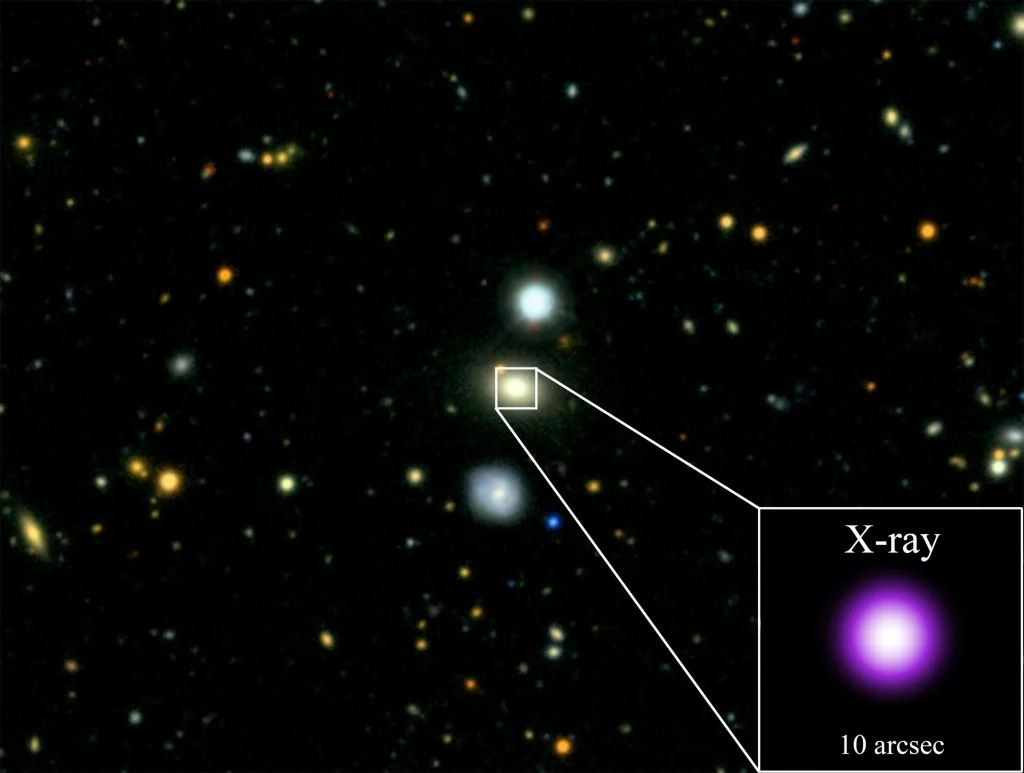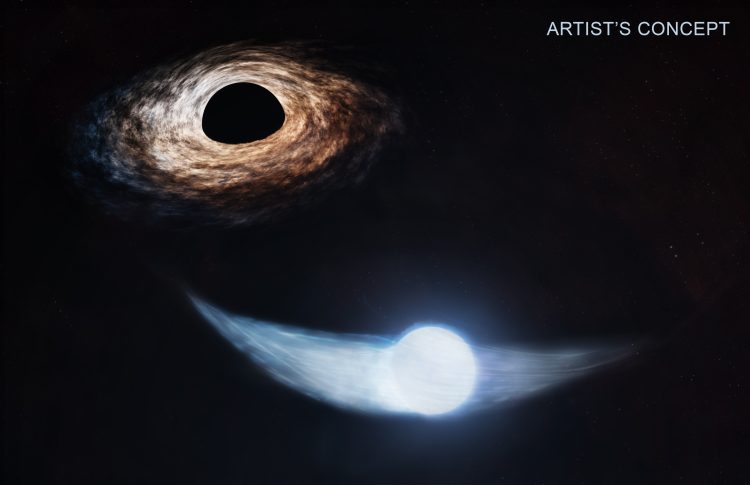Introduction
In the vast and enigmatic cosmos, black holes stand out as some of the most fascinating and mysterious objects in the universe. These regions of spacetime exhibit gravitational forces so intense that nothing, not even light, can escape their grasp. Recently, NASA’s telescopes have embarked on a groundbreaking endeavor to decode the “snack schedule” of black holes — a metaphorical term for understanding the feeding habits and activity cycles of these cosmic giants. This article delves into the intricate details of how NASA telescopes are advancing our knowledge of black holes, exploring their feeding behaviors, and uncovering the profound implications for our understanding of the universe.
Understanding Black Holes
1. What is a Black Hole?
Black holes are regions in space where the gravitational pull is so strong that not even light can escape. They are formed when massive stars collapse under their own gravity at the end of their life cycle or when matter is compressed into a small volume.
A. Formation and Types
- Stellar-Mass Black Holes: These are formed from the remnants of massive stars that have undergone supernova explosions. They typically have masses ranging from about 5 to 30 times that of the Sun.
- Supermassive Black Holes: These giants reside at the centers of galaxies, including our own Milky Way. Their masses can range from millions to billions of times the mass of the Sun.
- Intermediate and Primordial Black Holes: Less common, these include black holes of intermediate size and those that might have formed in the early universe.
B. Event Horizon and Singularity
- Event Horizon: The boundary surrounding a black hole beyond which no information or matter can escape. It marks the point of no return.
- Singularity: The core of a black hole where density becomes infinite and gravitational forces are extreme. It represents a point where the known laws of physics break down.
2. Feeding and Activity Cycles
A. Accretion Disks
When a black hole “feeds,” it attracts and pulls in surrounding matter, forming an accretion disk. This disk consists of gas, dust, and other materials that spiral into the black hole, heating up and emitting radiation as they are compressed and accelerated.
- X-ray Emission: The matter in the accretion disk becomes extremely hot and emits X-rays, which can be detected by telescopes.
- Jet Formation: Some black holes produce powerful jets of particles that are ejected at near-light speeds. These jets can be observed in various wavelengths, including radio and X-ray.
B. Feeding Patterns
- Active and Quiescent Phases: Black holes can exhibit periods of high activity (when they are actively consuming matter) and quiescence (when they are relatively inactive).
- Periodic Feeding: Observations suggest that some black holes may have periodic feeding patterns, where they undergo cycles of intense activity followed by periods of calm.
NASA’s Role in Black Hole Research
1. Telescopes and Observatories
NASA employs a range of telescopes and observatories to study black holes and their behaviors. These instruments operate across different wavelengths of the electromagnetic spectrum, providing complementary data that helps scientists piece together the complex puzzle of black hole activity.
A. Space-Based Observatories
- Chandra X-ray Observatory: This telescope specializes in observing X-rays emitted by high-energy phenomena, including black holes. It provides detailed images and spectra that help scientists understand the nature of accretion disks and jets.
- Hubble Space Telescope: Known for its high-resolution optical images, Hubble contributes to the study of black hole environments and the effects of their gravitational influence on surrounding stars and gas.
- James Webb Space Telescope (JWST): As NASA’s most advanced space telescope, JWST is expected to provide unprecedented insights into the early universe and the formation and growth of black holes.
B. Ground-Based Observatories
- Event Horizon Telescope (EHT): This global network of radio telescopes focuses on imaging the event horizons of black holes. Its groundbreaking work includes capturing the first image of a black hole’s shadow in the galaxy M87.
- Very Large Array (VLA): Located in New Mexico, the VLA observes radio waves from black holes and their associated jets, providing valuable data on their behavior and interactions with their environment.
2. Key Discoveries and Research
A. Imaging Black Holes
One of the most significant achievements in black hole research was the capture of the first image of a black hole’s event horizon by the Event Horizon Telescope in 2019. This landmark observation provided direct visual evidence of the shadow of a supermassive black hole in the galaxy M87.
B. Understanding Feeding Mechanisms
NASA’s telescopes have contributed to our understanding of black hole feeding mechanisms. Observations have revealed details about the structure of accretion disks, the formation of jets, and the variations in activity levels.
C. Studying Black Hole Mergers
Recent studies have also focused on black hole mergers, where two black holes collide and merge, releasing enormous amounts of energy. These events, detected through gravitational waves, provide insights into the formation and evolution of black holes.

The “Snack Schedule” of Black Holes
1. Concept and Significance
The term “snack schedule” refers to the periodicity and variability in black hole activity. By studying these cycles, scientists can gain insights into how black holes interact with their environment and how they influence their surroundings.
A. Periodic Feeding Cycles
- Variability in Emission: Observations of X-ray and radio emissions from black holes have shown variability that suggests periodic feeding cycles. These cycles can last from days to years, depending on the size and type of black hole.
- Influence of Surrounding Material: The availability of surrounding material can affect a black hole’s feeding schedule. Regions with abundant gas and dust may lead to more frequent feeding events.
B. Implications for Galaxy Evolution
The feeding habits of supermassive black holes are closely linked to the evolution of galaxies. Active black holes can influence star formation and the dynamics of their host galaxies through their emissions and jets.
2. Observational Techniques
A. Monitoring Light Curves
Scientists use light curves, which plot the brightness of an object over time, to study the variability in black hole emissions. Changes in the light curves can indicate periods of intense feeding or quiescence.
B. Spectroscopy and Imaging
Spectroscopic analysis of emitted radiation provides information on the composition and velocity of material around black holes. Imaging techniques help visualize the structure of accretion disks and jets.
C. Multi-Wavelength Observations
Combining observations across different wavelengths (X-rays, optical, radio) allows for a more comprehensive understanding of black hole activity. Each wavelength provides unique information about different aspects of the black hole’s behavior.
Broader Implications of Black Hole Research
1. Advancing Our Understanding of Physics
A. Testing General Relativity
Black hole research provides a testing ground for Einstein’s theory of general relativity. Observations of extreme gravitational effects near black holes help test and refine our understanding of gravity and spacetime.
B. Exploring Extreme Environments
Studying black holes allows scientists to explore the most extreme environments in the universe. This research helps improve our understanding of fundamental physics, including the behavior of matter and energy under extreme conditions.
2. Impact on Cosmology
A. Galaxy Formation and Evolution
Supermassive black holes play a crucial role in the formation and evolution of galaxies. Understanding their feeding patterns and interactions with their environment provides insights into the processes that shape galaxies.
B. Origins of Black Holes
Research on black holes also sheds light on their origins, including how they form and grow over cosmic timescales. This knowledge helps explain the distribution and characteristics of black holes observed in the universe.
3. Public Engagement and Education
A. Inspiring Curiosity
Black hole research captures the public’s imagination and inspires curiosity about the universe. NASA’s efforts to communicate findings and discoveries help engage the public and promote interest in space science.
B. Educational Outreach
NASA’s educational programs and outreach initiatives use black hole research to teach students about astrophysics and space science. This helps cultivate the next generation of scientists and engineers.
Challenges and Future Directions
1. Technical and Observational Challenges
A. Resolving Fine Details
Observing and analyzing the fine details of black hole behavior presents technical challenges. High-resolution imaging and spectroscopy require advanced technology and precise calibration.
B. Interpreting Complex Data
Interpreting data from multi-wavelength observations involves complex analysis and modeling. Scientists must integrate information from different sources to build a comprehensive understanding of black hole activity.
2. Future Research Goals
A. Enhanced Observatories
Future research will benefit from advancements in space telescopes and observatories. Upcoming missions and technologies will provide more detailed observations and deeper insights into black hole phenomena.
B. Interdisciplinary Collaboration
Collaboration across disciplines, including astrophysics, cosmology, and high-energy physics, will continue to advance our understanding of black holes. Collaborative efforts will enhance the analysis and interpretation of data.
Conclusion
NASA’s exploration of black holes and their “snack schedules” represents a remarkable achievement in our quest to understand the universe. By employing advanced telescopes and observational techniques, scientists are uncovering the mysteries of these cosmic giants and their interactions with their surroundings.











































Discussion about this post